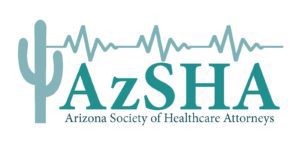COVID’S Constitutional Conundrum: Assessing Individual Rights in Public Health Emergencies
Time: 12:00 noon to 1:00 pm
Place: Cisco WebEx
Considerable legal challenges alleging infringements of constitutional rights have arisen against governments imposing social distancing or other restrictive measures to quell the COVID-19 pandemic. Courts assess these claims largely under two variant approaches. Consistent with constitutional re-balancing, judges weigh the application of rights against governments’ compelling needs to protect public health and safety in emergencies. Alternatively, a minority of courts temporarily set aside existing rights to effectuate emergency responses. Neither approach is legally sufficient to the extent they fail to account for the flexible nature of rights and freedoms in exigencies. Rather, courts should engage in guided assessments focused on the execution, efficacy, and purpose of public health emergency interventions as a constitutional prerogative instead of examining alleged infringements of rights framed outside emergency contexts.
James G. Hodge, Jr., JD, LLM, is the Peter Kiewit Foundation Professor of Law and Director of the Center for Public Health Law and Policy at the Sandra Day O’Connor College of Law, Arizona State University. Through scholarship, teaching, and projects, Professor Hodge delves into multiple areas of health law, public health law, global health law, ethics, and human rights. Since September 2010, he also serves as Director, Western Region Office, Network for Public Health Law (funded by the Robert Wood Johnson Foundation). To date The Western Region Office has assisted public health lawyers, officials, practitioners, students, and others across 11 states and nationally on over 4,400 claims.
Jennifer L. Piatt, J.D., (“Jen”) is a Research Scholar with the Center for Public Health Law and Policy at the Sandra Day O’Connor College of Law, Arizona State University, and a Senior Attorney with the Network for Public Health Law’s Western Region Office. Before joining ASU and the Network, Jen served as a law clerk to Vice Chief Justice Ann A. Scott Timmer of the Arizona Supreme Court and worked in private practice as a pharmacy regulatory attorney at Quarles & Brady LLP, in the firm’s Phoenix, Arizona office.
Due to the current social distancing recommendations, this program will be held via video conference through Cisco WebEx. This program will be $10 for members and $15 for non-members.
To register, please visit our website https://azsha.org/, click upcoming programs, on the right you will see a button that says “Register for Next Program Pay Now”. This button will take you to a screen with multiple payment options. Please select your membership level. If you are a member, please login and proceed with the payment process. If you are not a member, you will have to create a username and password to continue with the payment process.
Once you have registered online, you will receive a calendar invite containing the WebEx link. Please note, you don’t need to sign up for a WebEx Account to join a meeting.
The State Bar of Arizona does not approve or accredit CLE activities for the Mandatory Continuing Legal Education requirement. This activity may qualify for up to 1 hour of CLE credit, 0 hours of ethics, toward your annual requirement for the State Bar of Arizona.
